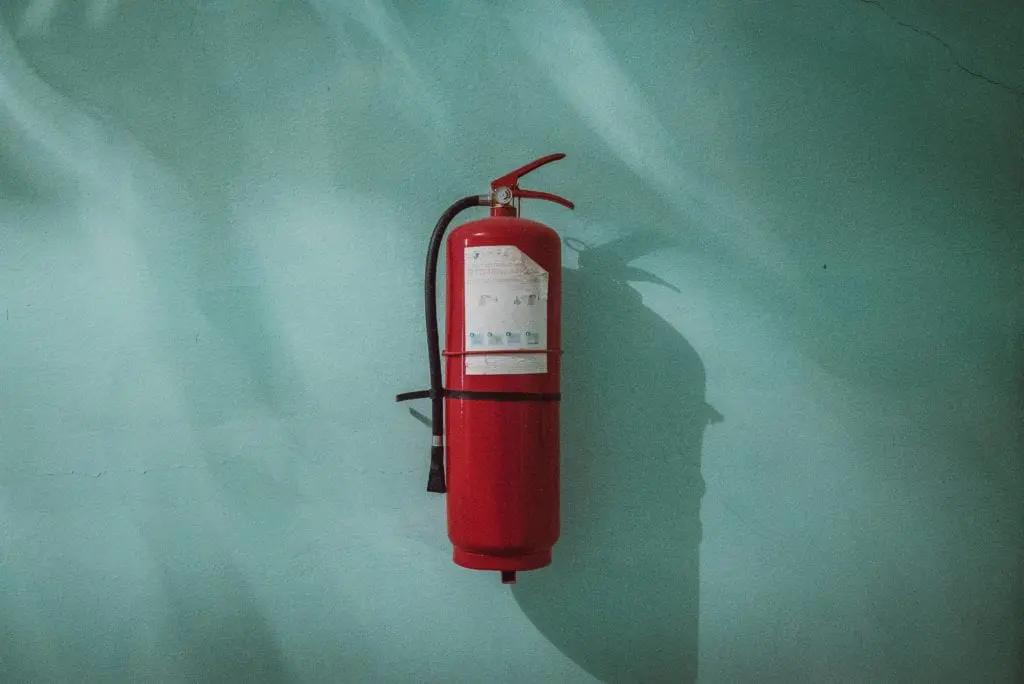
Having your home catch on fire is undoubtedly one of the biggest fears a homeowner can have, whether it’s caused by an internal mishap or from external circumstances like wildfires. Various factors can lead to fires, but many of them can be prevented or limited with the proper steps taken. Here are a few things that you can do to help fireproof your home and surroundings and ease your mind a little.
Put in Smoke Detectors and Have Fire Extinguishers on Hand
If your home doesn’t already have smoke detectors, installing them is the first step you should take. Smoke detectors are your first line of defense if a fire breaks out. According to the National Fire Protection Association, smoke detectors should be installed, at a minimum, inside every bedroom as well as outside every sleeping area and on every level. More may be needed in a larger home, and if you can, have them operate as a network to better alert you and others in the house. Test your smoke detectors at least once a month using the test button and replace the batteries when needed. For fire extinguishers, it’s good to have at least one handy for accidental fire breakouts (like kitchen mishaps). Select one that’s in line with the fire code of your region, maintain it properly and ensure that you can easily access it in an emergency.
Take a Look at Your Yard
You should remove any dry vegetation or debris in your yard, particularly in the spring and fall. If plants or shrubs are tough to dig up, wet them down. The Federal Emergency Management Association recommends that homeowners have about 30 feet of space between all vegetation and the house if possible. Keep your lawn cut short, and if you have trees that contain sap that is extremely flammable, such as pines, remove them or trim their branches so they’re not close to the ground. You might consider planting fire-resistant plants near your home, such as salvias and sycamore trees, depending on what’s available in your area.
Clean Your Gutters
The rain gutters attached to your house can pick up more than water — winds can drop a lot of leaves and debris from trees and other plants into them. In addition to clogging gutters so they can’t properly do their job, this debris is also a potential fire hazard in dry seasons, so aim to clean your gutters as often as you can.
Double-Check Your Roofing
You should check your home’s roof periodically for any exterior damage that can allow water to seep in, as that moisture can come in through the attic and the walls where your home’s wiring is located. Be sure to clean off any debris, inspect and repair any broken shingles and use sealants to prevent debris from getting under the roof’s covering.
Get Fireproof Carpeting
You might not be overly concerned with your carpet as a potential fire hazard, but these days more homeowners are furnishing their property with fire-resistant carpets and rugs. If you’ve got older rugs and carpeting, you might consider using fire-retardant chemicals on them.
Clean Your Attic and Basement Often
It happens to everyone — your junk mail piles up along with magazines, and you’ll find yourself stashing it in your attic or basement along with other things that you’ve been meaning to get rid of. These items pose a threat in terms of combustion if a fire breaks out, even more so if you keep flammable items like cleaners and paints in these spaces as well. Do a sweep of your attic and basement a couple of times a year to limit these items from piling up.
While no home is 100 percent fireproof, taking action on these tips for your home can go a long way to alleviating your concerns about fire afflicting your home.

Christopher Smith is a freelance writer when he’s not sampling the best cuisine in his hometown of New York City. Prior to that, he worked in film and television post-production, and counts the honor of working with Eartha Kitt among his milestones.
 12 Stylish Kitchen Design Trends & Ideas
12 Stylish Kitchen Design Trends & Ideas